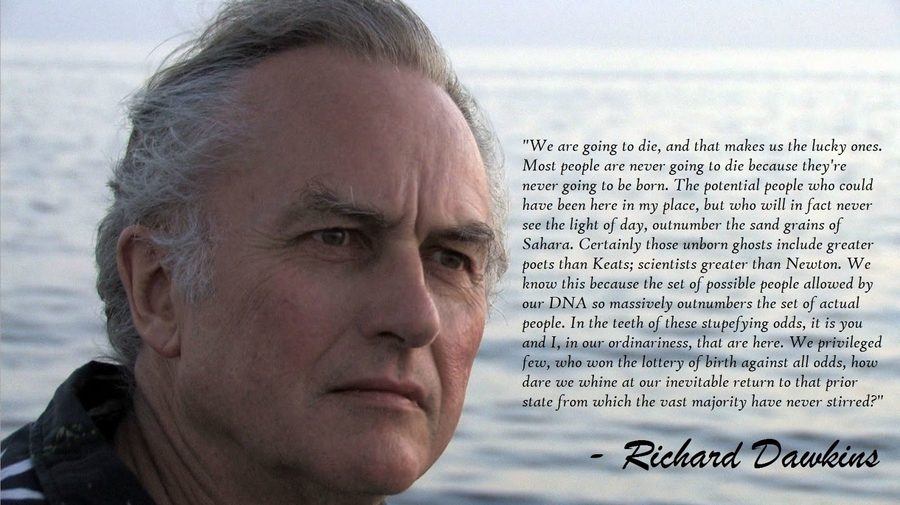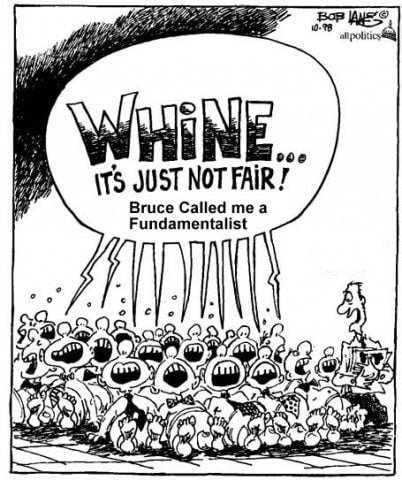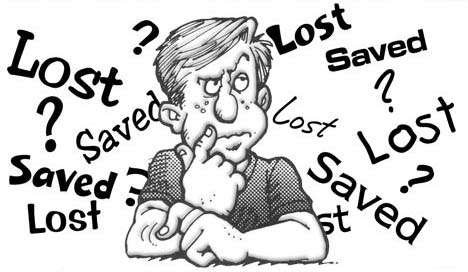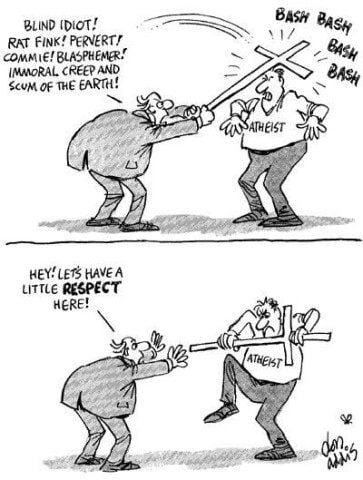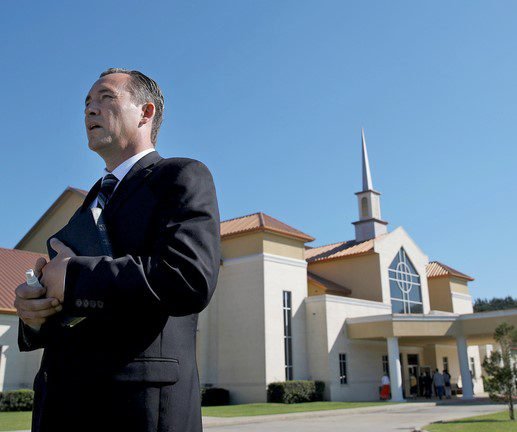
Last week, I mentioned the refusal of Pastor Tony Spell — pastor of Life Tabernacle Church: The Apostolics of Baton Rouge — to stop holding services, despite being ordered to do so by the governor of Louisiana, and his being charged with violating that order. Since then, Spell has been arrested and charged with assaulting a protester outside of his church. Spell was later released. After his release from what he called “prison,” Spell gave a short speech to fawning congregants who were camped outside of the jail awaiting his triumphant release.
Here’s what Spell had to say:
Spell believes the Declaration of Independence states:
We hold these truths to be self-evident, that all men are created equal, that they are endowed by their Creator with certain unalienable Rights. My rights to have church and preach the gospel of Jesus Christ are endowed to me by my Creator, not my district attorney, not my chief of police, and not my governor, John Bel Edwards.
I wonder if the writers and signers of Declaration of the Independence thought that citizens had the unalienable right to hold church services during a pandemic? I wonder if they thought that the right to gather in a building at 11:00 AM on Sunday for church supersedes the rights of other citizens to the pursuit of life, liberty and happiness?
Spell thinks he lives in a bubble, one where his actions do not affect others. He is what is called an autonomous man. Give me liberty or give me jail, he cries; all the while his immoral behavior puts his congregants and neighbors in harm’s way.
Spell and other rebellious, anti-government Evangelical pastors refuse to act in the best interest of their churches and their communities at large. Self-centered, egotistical narcissists, the lot of them, all that matters to them is taking a stand for the mythical Jesus.
Evangelicals love pastors who stand against what they wrongly believe are government attacks on their right to worship a dead man. Over the past three years, thanks to President Donald Trump and his merry band of Evangelical cabinet members and advisers, Evangelicals have become emboldened in their stand against government at every level. Sadly, we will see more public displays of rebellion in the days and weeks to come. The Coronavirus is not going away, and states hell-bent on reopening their economies will, several weeks from now, fuel an increase in COVID-19 infections. State governors will then be forced to either obfuscate or deny what is going on in their states or re-institute stay-at-home orders. This will lead, of course, to further rebellious acts by protesting Evangelical preachers. Welcome to Hell.
The First Amendment to U.S. Constitution states:
Congress shall make no law respecting an establishment of religion, or prohibiting the free exercise thereof; or abridging the freedom of speech, or of the press; or the right of the people peaceably to assemble, and to petition the Government for a redress of grievances.
Spell and his fellow patriot pastors believe that they have an inviolable right to freely practice their religion whenever, however, and wherever they want; that government has no right to limit their religious practice. However, I would ask, is this right absolute? Does the government ever have the right, dare I say responsibility, to limit the free exercise of religion?
Let me be clear. When Spell and other Evangelical preachers read the Declaration of Independence and the Constitution, they read their religion into these documents. These so-called men of God are not pluralists. To the man, they believe the United States is a Christian nation — a people chosen by the Christian God to be a light and blessing to the world. Thus, while these preachers tolerate other religions, agnostics, and atheists, if they had their druthers, Christianity would be the official American religion and the Bible the rule of law.
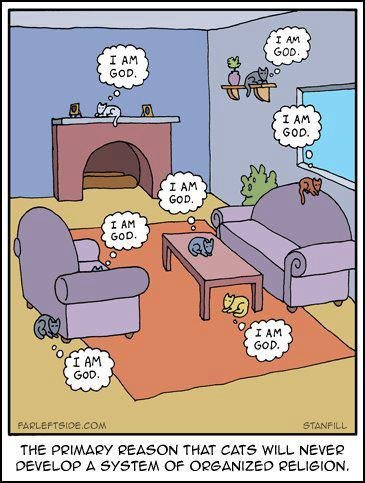
Imagine if I were a worshiper of the Kat God, and one of the rituals I practiced was to stand on the sacred sidewalk in front of Evangelical churches, chant prayers to the Almighty Kat, and sacrifice puppies to him. Would Spell be okay with my free exercise of religion? Imagine if an Islamic congregation wanted to build a church right next to Spell’s church. Do you think he would support their free exercise of religion? Imagine any of a number of other scenarios where non-Christians practiced their religions in ways that harmed or offended Spell, his family, and his congregation. Would the good pastor shout, AMEN? I doubt it. Spell wants preferential treatment for his religion, Apostolic Christianity — a sect, by the way, that some Evangelicals consider a cult.
Spell deliberately refuses to acknowledge that government, for the sake of public health, safety, and welfare, has a duty to enact laws that regulate and limit the free exercise of religion — not so much at a personal level, but certainly when people congregate together. Churches are required to follow building and safety codes. Ask any pastor who has built a church building about how complex the laws are for new commercial construction or how strict safety and fire codes are. Spell and Life Tabernacle Church willingly submit to all sorts of government regulations. Refusing to obey these regulations would bring inspections, fines, and prosecution. Why? Because the government has a duty and responsibility to protect its citizens. And that is exactly what the state of Louisiana and local government officials are trying to do when enforcing stay-at-home orders.
Instead of obeying these orders, Spell and other anti-government pastors disobey the teaching of Jesus and the early Christian church. Jesus said that the law of God rested on two Great Commandments: loving God and loving your neighbor as yourself. I always taught congregants that loving God required loving your neighbor. Don’t love your neighbor? You don’t love God. It’s clear, at least to me, that Spell doesn’t love his neighbors. If he did, he would abide by the stay-at-home orders. And if Spell doesn’t love his neighbors, it’s fair to ask if he really loves God. It is also far to ask, does his behavior reveal a self-centered man who only cares about self-promotion? You know my answer.
Bruce Gerencser, 66, lives in rural Northwest Ohio with his wife of 45 years. He and his wife have six grown children and thirteen grandchildren. Bruce pastored Evangelical churches for twenty-five years in Ohio, Texas, and Michigan. Bruce left the ministry in 2005, and in 2008 he left Christianity. Bruce is now a humanist and an atheist.
Connect with me on social media:
Your comments are welcome and appreciated. All first-time comments are moderated. Please read the commenting rules before commenting.
You can email Bruce via the Contact Form.



